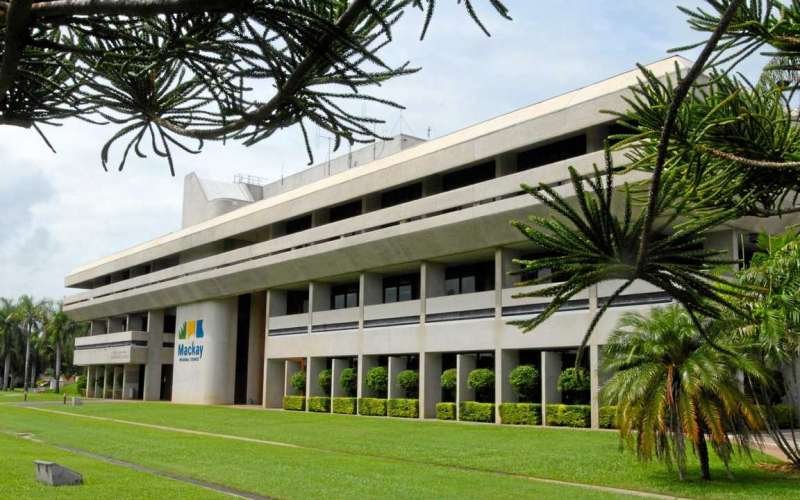Unlocking the Potential: The Benefits of Working in Economic Development for Australian Councils

Economic development is one of the most dynamic and rewarding career paths within Australian local government.
Working in this field allows professionals to make a tangible difference in their communities, driving economic growth, improving livelihoods, and ensuring sustainable development. As Australia's cities and regions continue to evolve, the role of economic development officers (EDOs) within local councils is becoming increasingly important.
What is Economic Development in Local Government?
Economic development, in the context of local government, refers to the initiatives and strategies designed to foster economic growth and improve the quality of life for residents. Councils across Australia employ teams dedicated to working with local businesses, investors, and communities to support a strong and diverse economy. Economic development officers play a key role in implementing policies that attract investment, create jobs, support local businesses, and improve infrastructure.
The main focus of economic development professionals is to:
Boost Economic Activity: They create strategies that help grow the local economy by encouraging business investment, promoting tourism, and fostering entrepreneurship.
Facilitate Job Creation: By attracting new industries and supporting existing businesses, EDOs help generate employment opportunities for local residents.
Support Local Businesses: Economic development teams work closely with local businesses to provide advice, networking opportunities, and access to financial resources, helping them to thrive and compete.
Promote Sustainable Development: Ensuring long-term economic growth while preserving the environment and enhancing community well-being is a key responsibility of EDOs.
Key Responsibilities of an Economic Development Officer
Working in economic development for councils involves a diverse range of responsibilities. These may vary depending on the specific needs of the local area, but generally include:
Developing Strategic Economic Plans: EDOs collaborate with council officials, business leaders, and community stakeholders to create long-term plans that support economic growth. These plans often align with broader regional, state, or national economic policies.
Attracting and Retaining Investment: One of the primary goals of economic development officers is to attract investment from external businesses and industries. This can involve marketing the council area as an attractive place for businesses to set up operations, through incentives like grants or tax relief.
Business Development and Support: EDOs provide local businesses with guidance on growth opportunities, regulatory compliance, and access to funding. They might also organize workshops and training programs to build business skills within the community.
Infrastructure and Development Projects: Supporting infrastructure development is key to economic growth. Economic development teams work on projects ranging from transport and logistics improvements to digital infrastructure like broadband networks.
Community Engagement: Engaging with local residents and businesses to understand their needs and challenges is crucial for sustainable economic planning. EDOs often lead community consultations and stakeholder meetings to ensure the economic strategy aligns with community aspirations.
Research and Data Analysis: To effectively guide development, EDOs analyze local and regional economic data, demographic trends, and industry changes. This data informs their strategies and helps councils make data-driven decisions.
Benefits of Working in Economic Development
Economic development offers a variety of benefits, not just for the community but also for professionals pursuing this career. These benefits include:
1. Positive Community Impact
One of the most rewarding aspects of working in economic development is the ability to directly influence the well-being of the community. By creating jobs, improving infrastructure, and attracting investment, economic development professionals can see the tangible effects of their work on the local economy and quality of life for residents.
2. Diverse and Dynamic Work Environment
No two days are the same for an economic development officer. The job offers a dynamic work environment where you may engage with businesses, government agencies, community groups, and stakeholders from various sectors. The role often includes attending conferences, presenting to business leaders, and working on large-scale projects, ensuring that professionals are constantly challenged and engaged.
3. Career Advancement Opportunities
As economic development grows in importance, the career trajectory within local councils can be promising. Many economic development officers go on to hold senior positions within council management, state government, or even private sector roles. Skills in strategy, project management, stakeholder engagement, and business development are highly transferable across various industries.
4. Collaboration and Networking
Economic development requires collaboration with a wide range of stakeholders, from local businesses to state and federal governments. This networking not only helps advance projects but also opens up new opportunities for professional growth. Building relationships with influential decision-makers and community leaders can lead to further career progression.
5. Making a Difference in Regional Areas
In regional Australia, the work of economic development officers can be especially impactful. Regional areas often face unique challenges, such as higher unemployment rates, lack of infrastructure, or economic reliance on a single industry. Economic development officers in these areas play a crucial role in diversifying the economy and creating opportunities that may not have existed otherwise.
6. Promoting Sustainability
Many councils in Australia are adopting sustainable economic development models. As an economic development officer, you have the opportunity to promote green energy initiatives, sustainable business practices, and community resilience in the face of economic or environmental challenges.
7. Exposure to a Variety of Sectors
Economic development work involves understanding various sectors such as tourism, manufacturing, retail, and agriculture. This cross-sectoral exposure provides professionals with a well-rounded knowledge base and the ability to tackle challenges in multiple industries.
Conclusion
Working in economic development for councils in Australia is a highly rewarding career that allows professionals to be at the forefront of creating positive change in their communities. It offers a diverse, dynamic, and impactful work environment where each decision contributes to the betterment of society. Whether it's helping small businesses grow, attracting large-scale investment, or planning for sustainable development, the role of an economic development officer is crucial in shaping the future of local communities across Australia.
- Share This Job



Write A Comment
No Comments